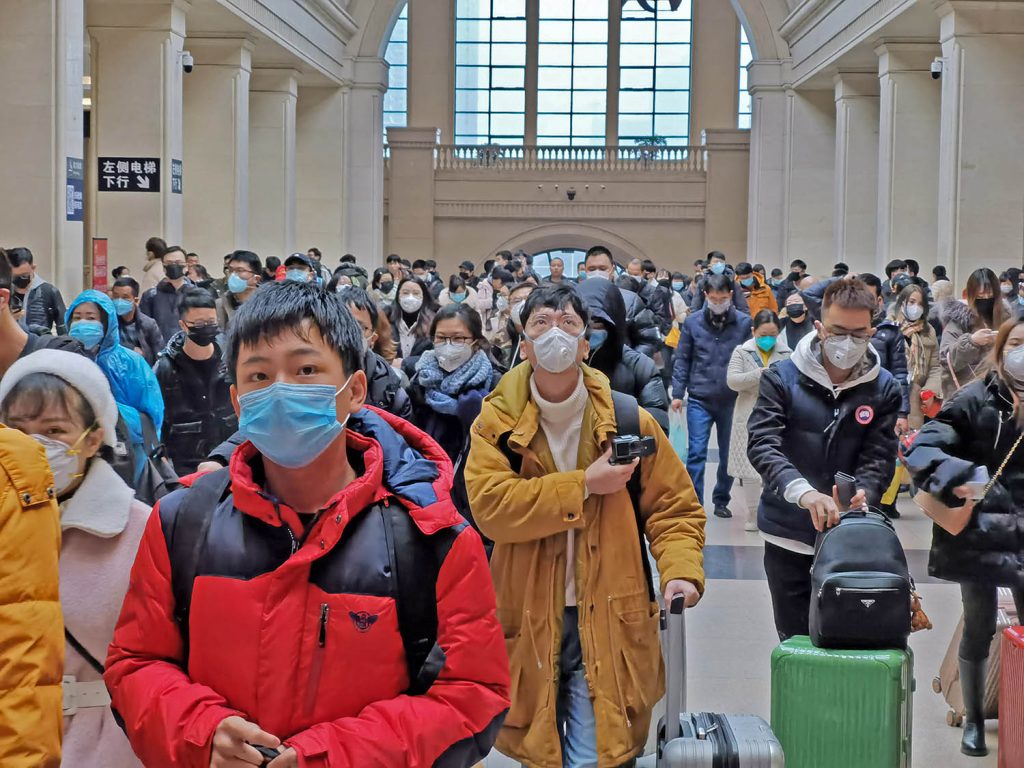South Korea on Monday reported its fourth confirmed Wuhan coronavirus case amid mounting concerns the pneumonia-like illness is spreading to other parts of the world from China despite concerted quarantine efforts. According to the Korea Centers for Disease Control and Prevention (KCDC), a 55-year-old South Korean man who returned from the Chinese city of Wuhan on Jan. 20 tested positive for the new strain of the virus that has killed 80 people so far.
The person, whose identity was withheld, visited a local clinic a day after returning home when he showed signs of a cold. His condition worsened, and when he complained of muscle cramps and ran a fever doctor started to actively monitor the man before finally placing him in quarantine on Sunday, the health safety agency said. “Health authorities are in the process of following his movements in the country and the people he may have contacted with the findings to be made public in due course,” the KCDC said. The country reported three confirmed cases of the new coronavirus strain on Jan. 20, Friday and Sunday and is keeping close tabs on those that may have come in contact with the patients.
On the third patient, a 54-year-old Korean man who had shown no signs of illness when he arrived from China last week, the public safety agency said he ran into 74 people, although none have shown symptoms of the coronavirus so far. It said the medical facilities he visited and the hotel he used have all been disinfected. The KCDC said that not counting the four infected people, it has checked 57 suspected cases so far, with 56 proving negative and one still undergoing detailed tests. The total number of people checked is up from 47 early on Sunday. On Sunday, health authorities said they will greatly tighten rules on screening on people with symptoms and take steps to keep more people in quarantine and under close observation.
The whole of China has been categorized as a “coronavirus risk area,” and Seoul has strongly advised its citizens not to visit the central Chinese city at the epicenter of the disease. Common symptoms of the coronavirus thought to have originated in Wuhan, central China, include fever, sore throat and breathing difficulties, with more acute cases bringing chills and muscle pain. Health experts said that elderly people and those with underlying disorders should be more careful. Airports across South Korea have set up checkpoints to screen passengers from China and other countries for signs of illness, with local authorities accelerating quarantine efforts to contain the virus as people return from visiting relatives and from foreign travels.
The KCDC stressed citizens should follow strict personal hygiene rules whether they are in the country or traveling abroad, especially since large numbers of Chinese tourists are visiting South Korea during the holiday period. The Lunar New Year is celebrated by both Korean and Chinese people. The agency said people feeling ill should immediately contact its emergency call center by dialing “1339” to receive assistance. The Ministry of Health and Welfare said it will hold a meeting of related officials later in the day to best respond to the current situation and come up with countermeasures. China, meanwhile, has confirmed 2,744 people infected, 461 of whom are in a critical condition.
Chinese authorities added that some of the new cases involve people in their 30s and 40s, with a nine-month-old baby also testing positive for the infection. The total number of infected cases worldwide has reached 2,794. Outside China, Japan, Taiwan, Thailand, Vietnam, Singapore, Malaysia, Nepal, Macao, Hong Kong, France, Australia, and the United States have reported confirmed cases of the new virus. Wuhan coronavirus, first reported on Dec. 31, 2019, was originally believed to be passed to humans from animals but is now known to be transmissible person to person, although victims may be contracting the virus by coming in contact with saliva and other bodily fluids rather than through airborne factors.
Source: The Korea Times
